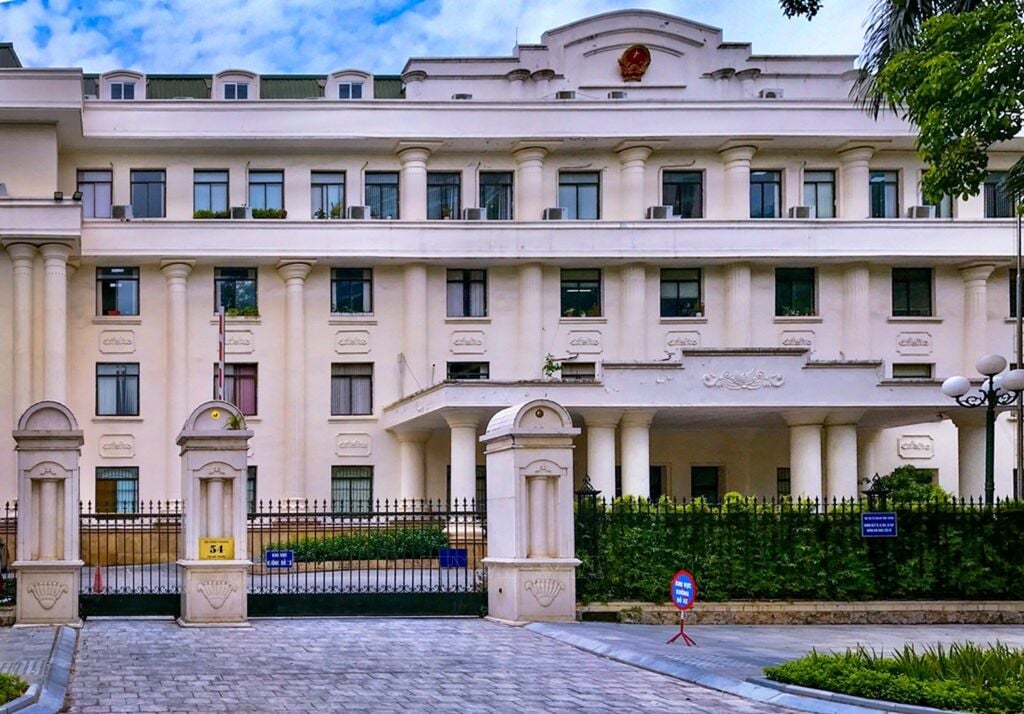
Over the past years, the Ministry of Industry and Trade has proactively built and put into operation about 40 databases, including open data, specialized data and data centers serving management and operations. However, the data systems are still scattered, unconnected and have not been fully exploited. Moreover, the sharing and integration of data between units is still fragmented and unsynchronized, making the ability to exploit, analyze and serve people and businesses not as effective as expected.
In the context of digital transformation becoming a key driving force of all industries and sectors, the Ministry of Industry and Trade sees the issuance of the Data Development Strategy as an urgent requirement. This strategy aims to form a unified, safe, effective data ecosystem that can connect to national databases, contributing to the development of a digital government, a digital economy and a digital society in Vietnam.
Accordingly, the Strategy aims to maintain the pioneering position of the Ministry of Industry and Trade in the national digital transformation process, while perfecting the legal framework for data collection, management, sharing and exploitation. On that basis, the Ministry aims to form a data ecosystem that is “correct, sufficient, clean, alive, unified and shared”, as a foundation for decision-making based on digital evidence.
In addition, the Ministry of Industry and Trade will build a comprehensive, synchronous and interconnected database for the entire industry to serve the management, policy making, market forecasting, and connection of activities of agencies and units. All activities of the Ministry, from strategic planning to operational implementation, will be carried out in a digital environment, towards the model of "Ministry of Industry and Trade operating by data".
The new strategy emphasizes the people- and business-centered perspective, encouraging the participation of the entire system in collecting, developing, exploiting and enriching data. This transformation not only helps the Ministry improve its management capacity but also contributes to building trust, increasing transparency in public service activities, promoting administrative reform and sustainable development.
According to the Strategy, the Ministry of Industry and Trade will develop data according to three main pillars including industrial and energy management data; trade and market management data; and general economic data of the industry and trade sector. Each group of data plays a separate role in serving operations, management and supporting policy making.
Industrial and energy management data help to effectively control production activities, planning and sustainable energy use. Trade and market management data reflect the current situation of goods circulation, trade, e-commerce and competition. Meanwhile, aggregated economic data is the foundation for the Ministry to forecast trends, assess impacts and plan policies for industry development.
By 2028, all databases of the Ministry of Industry and Trade that need to connect or exploit information will be interconnected through the LGSP data integration platform or digital platforms as prescribed. All activities of direction, administration, and policy issuance will be carried out in a digital environment based on data, ensuring publicity, transparency, and speed.
Regarding infrastructure, the Ministry of Industry and Trade will plan a centralized data center system according to the principle of "centralized infrastructure - interconnected data - efficient exploitation", ensuring information security, safety and scalability to serve connection with the national database. The goal by 2030 is to form a unified, secure and safe data system, becoming the core foundation to promote comprehensive digital transformation in the entire industry.
The strategy defines data as not only a management tool but also a strategic resource of the digital economy. The Ministry of Industry and Trade will build a transparent data governance mechanism, clearly defining ownership, access and exploitation rights, and promulgating policies on data value allocation and coordination to encourage innovation and sharing. In particular, the Ministry emphasizes ensuring national digital sovereignty over industry and trade data, especially in the context of globalization and cross-border data sharing.
To achieve this goal, the Ministry of Industry and Trade will increase investment in modern technology infrastructure, including centralized data centers, big data storage systems (data lake, data warehouse, cloud computing) and smart data analysis platforms. Developing a team of specialized data human resources including experts, engineers and data scientists is considered a key factor to master data mining, processing and analysis technology.
According to the implementation roadmap, the Strategy will be deployed in three phases. From 2025 to 2026, the Ministry will focus on building a data catalog, completing data collection and publication, issuing legal regulations and technical standards, and forming a professional data warehouse to serve the general work of the industry.
The 2027-2028 period will focus on applying artificial intelligence in data mining, analysis and management, aiming to form a synthetic data platform. By the 2029-2030 period, the Ministry of Industry and Trade will master data technology, develop applications to serve state management and policy making.
The budget for implementing the Strategy is allocated from the state budget and other legal sources, while encouraging the mobilization of resources from domestic and foreign enterprises and technology organizations. The Department of E-commerce and Digital Economy (Ministry of Industry and Trade) is assigned as the focal point, responsible for guiding, inspecting and supervising the implementation, coordinating with units under the Ministry to build, operate and secure a unified data system.
The Data Development Strategy and the Data Center Infrastructure Master Plan are not only technical plans, but also affirm the vision and long-term development orientation of the Ministry of Industry and Trade in the digital age. When data becomes the foundation of all activities, the Ministry will completely transform its management method, from the traditional management model to a more modern, flexible and transparent governance model.
Each management decision and each operating policy issued on the basis of reliable data will help the Ministry improve work efficiency, minimize errors, and create trust for businesses and people. Moreover, the formation of a modern data infrastructure also opens up opportunities to exploit more deeply economic, market, industrial and energy information sources, which are important factors for policy making and sustainable development.
The Ministry of Industry and Trade has determined that the development of data and data center infrastructure not only serves internal purposes but also promotes interconnection with other ministries and sectors, creating a synchronous and unified national data network. This is an important foundation for building a digital government, moving towards a digital economy, where all decisions are driven by data and transparent to society.
With the Data Development Strategy to 2030, the Ministry of Industry and Trade is demonstrating a long-term vision and strong commitment to comprehensive digital transformation, contributing to building a modern and effective governance system, towards the goal of developing a digital economy, digital society and Vietnam's digital government.
Source: https://baotintuc.vn/kinh-te/bo-cong-thuong-xay-dung-chien-luoc-phat-trien-du-lieu-den-nam-2030-20251110212853560.htm


![[Photo] Prime Minister Pham Minh Chinh attends the Patriotic Emulation Congress of the Ministry of Foreign Affairs for the 2025-2030 period](https://vphoto.vietnam.vn/thumb/1200x675/vietnam/resource/IMAGE/2025/11/10/1762762603245_dsc-1428-jpg.webp)

![[Photo] Prime Minister Pham Minh Chinh attends the annual Vietnam Business Forum](https://vphoto.vietnam.vn/thumb/1200x675/vietnam/resource/IMAGE/2025/11/10/1762780307172_dsc-1710-jpg.webp)
















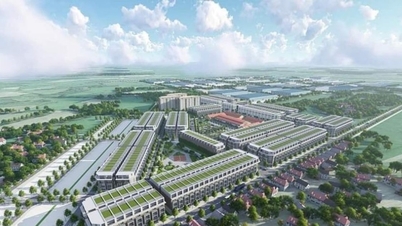



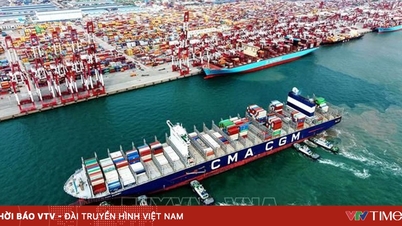
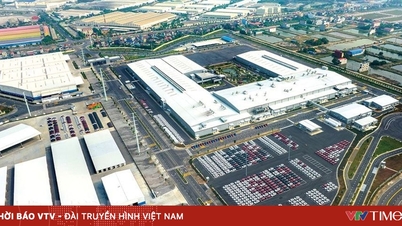






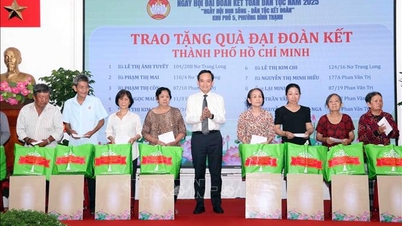















































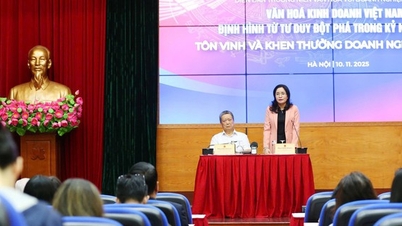















![Dong Nai OCOP transition: [Article 3] Linking tourism with OCOP product consumption](https://vphoto.vietnam.vn/thumb/402x226/vietnam/resource/IMAGE/2025/11/10/1762739199309_1324-2740-7_n-162543_981.jpeg)










Comment (0)